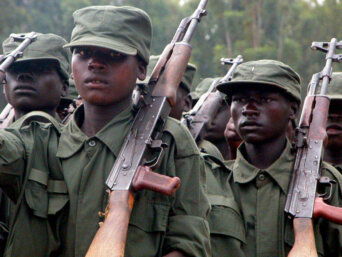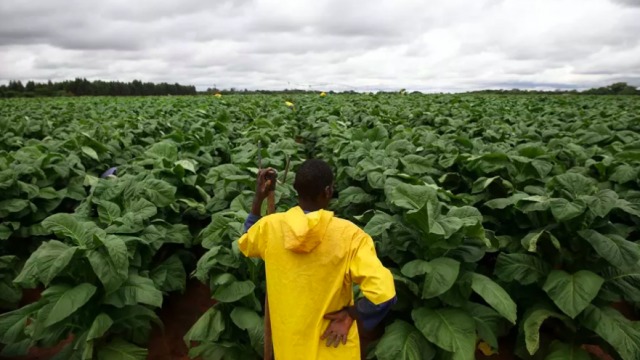- About
- Topics
- Picks
- Audio
- Story
- In-Depth
- Opinion
- News
- Donate
- Signup for our newsletterOur Editors' Best Picks.Send
Read, Debate: Engage.
| topic: | Child rights |
|---|---|
| located: | Uganda |
| editor: | Bob Koigi |
A few weeks ago, the International Criminal Court convicted former Uganda child soldier turned commander of Lord’s Resistance Army rebel group Dominic Ongwen on numerous crimes including sexual assault, murder and child abductions.
While that historic ruling has been lauded as a huge win for international justice and a reprieve for thousands of Ugandan citizens who have suffered untold atrocities in the hands of the rebel group in the decades-long conflict, it has nonetheless revived the debate on the worsening situation of child soldiers who have been robbed off their future and innocence and forced to take up arms or become sex slaves.
While official data on the number of children recruited as child soldiers is hard to come by, the United Nations statistics show that in 2019 an estimated 7,740 children, some as young as six, were forcefully recruited by armed groups as fighters or to perform other roles like cooking and becoming wives to the fighters. Currently Yemen, Somalia, DR Congo and Syria have recorded the highest number of child soldiers.
The situation is now being exacerbated by COVID-19 as the socio-economic impacts of the pandemic make poor families and their children easier targets for the armed groups.
While celebrating the international day against the use of child soldiers, also known as Red Hand Day, recently, the UN and EU celebrated in a joint statement the gains that have been made in rescuing the child soldiers and reintegrating them into society, but warned that the practice was still ongoing and called for increased collaboration to tackle it. “Education opportunities, already disrupted by war and displacement, are further vanishing. Children are tragically paying the highest price,” the statement reads.
Statistics indicate that up to 75 percent of today’s conflicts involve recruitment of children, which continues to complicate prevention, negotiation and reintegration.
The funding of anti-recruitment and reintegration projects is expected to fall as countries divert resources to tackle the pandemic. Coronavirus has also affected the implementation of laws to criminalise conscription of children as nations focus on addressing the pandemic.
While this is understandable, the 170 countries who have ratified the Optional Protocol of the Convention on the Rights of the Child on the involvement of children in armed conflict (OPAC), which bans children under 18 years participating in any hostilities, must live up to their commitment to protect children; now more than ever - when they remain vulnerable.
Extra resources must be dedicated and stricter legislation enacted to rescue them before it is too late.
Image by HumanLifeImages.

